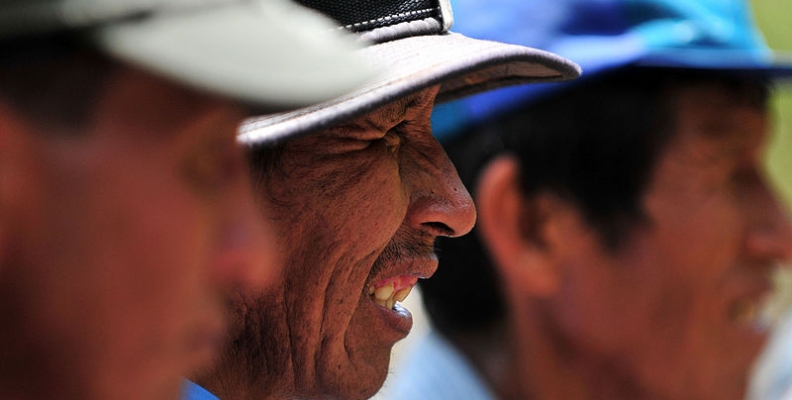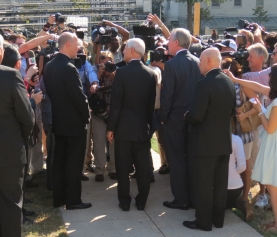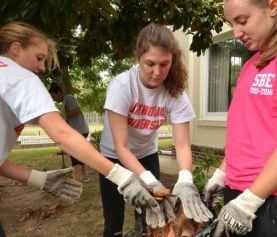
John Garvey: The Practical Pope
On his recent trip to Bolivia, Pope Francis addressed the World Meeting of Popular Movements about the global dictatorship of greed. When greed presides over the entire socioeconomic system, Francis said, “It ruins society, it condemns and enslaves men and women, it destroys human fraternity, it sets people against one another and, as we clearly see, it even puts at risk our common home.” We need change, Pope Francis said.
But who is to effect it? Given the scope of the problem, one might think Pope Francis would call on governments, the EU, or the United Nations. But instead Pope Francis addresses the poor and underprivileged:
“What can I do as a craftsman, a street vendor, a trucker, a downtrodden worker, if I don’t even enjoy workers’ rights? What can I do, a farmwife, a native woman, a fisher who can hardly fight the domination of the big corporations? What can I do from my little home, my shanty, my hamlet, my settlement, when I daily meet with discrimination and marginalization? . . . A lot! They can do a lot. You, the lowly, the exploited, the poor and underprivileged, can do, and are doing, a lot.”
The call for the small, daily, and concrete action of the individual has been a hallmark of Francis’s papacy. In his general audiences Pope Francis has been known to give homework assignments: Look up the day of your baptism so you can celebrate it; memorize the beatitudes. In his recent encyclical Laudato Si’ he offered several concrete steps any person could take to care for and appreciate creation: Say grace before and after meals (227); wear warmer clothes instead of turning up the heat (211). It’s the kind of practical advice your dad might give you.
It’s also the kind of practical advice that removes any excuse we might have for inaction. No matter the scope of the problem — whether it’s environmental degradation, human trafficking, or poverty — there is some small step we can take to contribute to its solution. And that small step often requires a conversion of heart from love of self to love of God and neighbor.
Pope Francis’s pragmatism is also not without principle. It has theological roots. As he reminded us in his first apostolic exhortation Evangelii Gaudium,
We may be sure that none of our acts of love will be lost, nor any of our acts of sincere concern for others. No single act of love for God will be lost, no generous effort is meaningless, no painful endurance is wasted. All of these encircle our world like a vital force. (279)
This certainty arises from our faith that God can and does act in every situation and does so through our small and insufficient efforts. As St. Paul reminds us, “We have this treasure in earthen vessels, to show that the transcendent power belongs to God and not to us” (2 Cor 4:7).
— John Garvey is President of The Catholic University of America.








